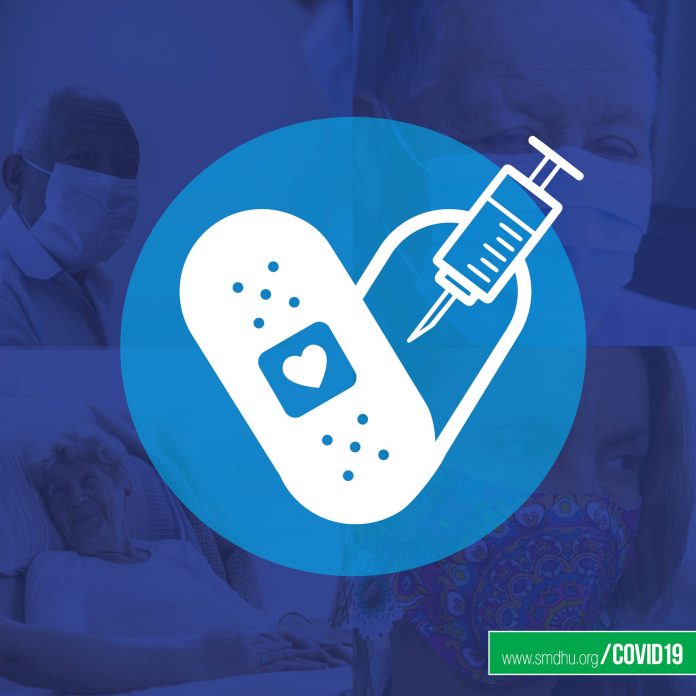With over 82 per cent of eligible Ontarians aged 12 and over having received one dose of the vaccine and 75 per cent having received both doses, the government is continuing its last mile strategy to reach eligible individuals who have yet to receive a first or second dose. These latest efforts continue to make vaccines readily and conveniently available, especially in lower-vaccinated areas, and include proactively contacting individuals who have not booked their accelerated second dose appointment.
“Vaccines are the best protection against COVID-19 and the Delta variant,” said Christine Elliott, Deputy Premier and Minister of Health. “Working with our public health partners we are continuing make it easier and more convenient to receive the vaccine. If you haven’t been vaccinated yet and have questions, I encourage you to reach out to your pharmacy, family doctor or primary care provider.”
To support the province’s last mile strategy, the province and public health units are focusing on smaller, community-based and easy-to-access settings for vaccinations. This includes mobile clinics and community-based pop-ups, dedicated clinic days for families with people with disabilities, and townhall meetings in multiple languages. In addition, the province is working with public health units to target areas with low vaccination rates, as identified by postal codes, to support localized vaccination strategies as well as targeted marketing by the province in these areas.
To ensure all eligible Ontarians benefit from the strong protection offered by both doses of the vaccine as soon as possible, the provincial call centre is calling Ontarians to remind them to rebook their accelerated second dose appointments. Over 110,000 second dose appointments have been successfully booked or rebooked through this initiative.
A key component of Ontario’s last mile strategy is bringing the vaccines directly to people, where they are located. To date, Ontario’s GO-VAXX bus clinic has administered 1,100 vaccine doses, 42 per cent of which were first doses.
“Ontario’s COVID-19 vaccination campaign has been a collective success. While we can certainly take pride in our immunization achievements, there is still work to be done to ensure everyone is protected,” said Solicitor General Sylvia Jones. “That’s why we are shifting focus in this last mile, from mass vaccination clinics to community-based settings using strategies such as mobile clinics and GO-VAXX buses to reach Ontarians who have yet to receive a first or second dose of a COVID-19 vaccine.”
Public health units are also partnering with elementary and secondary school boards, colleges and universities to make vaccines readily available for all students returning to school. This includes youth who were born in 2009 and will turn 12 this year.
“This is my call to arms,” said Dr. Kieran Moore, Chief Medical Officer of Health. “It is vital for everyone who can to receive both doses of a COVID-19 vaccine. We are implementing many community-based initiatives so everyone can easily receive their vaccine, especially those who live in areas with lower vaccination rates. We will continue to monitor data to determine when it is safe to exit the Roadmap and get life back to normal.”
The success of Ontario’s vaccine rollout, which has resulted in one of the highest vaccination rates in the world, is having an impact and continues to protect Ontarians against the virus. Between December 14, 2020 and August 7, 2021, unvaccinated or partially vaccinated cases accounted for the majority (99.4 per cent) of COVID-19 cases reported. Similarly, unvaccinated or partially vaccinated cases accounted for 99.2 per cent of hospitalizations, and 98.8 per cent of deaths during the same time period.
In response to evolving data around the transmissibility of the Delta variant and based on the recent experiences of other jurisdictions, recently the government, in consultation with the Chief Medical Officer of Health, paused exiting the Roadmap to Reopen. This additional time will allow the province to further increase immunization rates by engaging in targeted strategies to make it easier and more convenient for individuals to get vaccinated.
Quick Facts
- COVID-19 vaccines are currently available at over 3,150 locations across the province, including more than 2,500 pharmacies and more than 650 mass immunization clinics, hospitals, primary care settings and pop up and mobile clinics.
- A key component of Ontario’s last mile strategy is getting vaccines to people, wherever they are located. If you need your first or second shot, keep an eye out for our new GO-VAXX mobile clinics. The schedule can be found online.
- To protect vulnerable patients and staff in settings where the risk of contracting and transmitting COVID-19 and the Delta variant is higher, the Chief Medical Officer of Health has issued a directive mandating hospitals and home and community care service providers to have a COVID-19 vaccination policy for employees, staff, contractors, students and volunteers, and for ambulance services to have a COVID-19 vaccination policy for paramedics.
- Individuals with a green photo health card can download or print an electronic COVID-19 vaccine receipt through the provincial portal, or by calling the Provincial Vaccine Booking Line. Individuals who have a red and white health care or who do not have a health card can contact the Provincial Vaccine Booking Line at 1-833-943-3900 for a call centre agent to email them a copy of their first and second dose receipts.
- The federal government has announced its plan to implement a national vaccine passport for international travel. In addition to the official proof of vaccination provided by the Ministry of Health, a vaccine passport provided by the federal government can be used domestically as proof of immunization, once available, should it be required by a business or organization.








